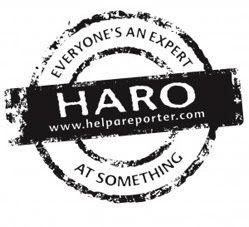Hildy Gottlieb's new book, The Pollyanna Principles, draws from her experience as an educator and consultant to address a real challenge for charities and other organizations working in the community—regardless of the quality of work, most efforts don’t realize significant improvement in a community’s quality of life. Check out the first part of a two-part interview we had with her.
Read MoreA Student Again
This week I'm going back to school. I will be auditing a course that I think will not only help me figure out the higher education conundrum (see my 7/10 post), but will also help me be a better new generation philanthropist by learning its past, present and future. The professor has allowed me to blog on the class, but requested that I not specify the class to maintain its integrity with the students who are taking it. So between this month and December, expect weekly musings and insight about the readings (which are in the public domain) as I progress through the semester. I hope good conversation can occur on this site as we all go forward in our philanthropic and foundation work.
And just to whet your appetite, here's an excerpt from the school's website about the class:
...some foundations, especially large ones, have grander and more aggressive ambitions. They aspire to function as proactive change agents that are instrumental in incubating and creating new institutions, fostering and deploying new knowledge, cultivating and spreading innovative ideas, spawning and
sustaining social movements, informing and shaping public opinion, reforming major institutions and service delivery systems, and impacting public policy....we will examine: (1) the original and continuing rationale for the existence of foundations; (2) significant examples of this catalytic role achieving its intended purpose; (3) high profile instances where best intentions backfired; and (4) the controversies that can arise when foundations choose sides in ideologically charged debates. The seminar will also concentrate on the spirited criticism that occasionally erupts over whether foundations are sufficiently transparent and accountable for their expenditures and impact; whether they should exist in perpetuity or be required to spend their way out of existence; whether and how they should be held responsible for the dubious actions of grantees; and whether they should be subjected to more rigorous legislative and regulatory strictures and oversight.
Reach your big, hairy, audacious goals
My vision for this blog has been to help move young people and people of color to leadership positions in the philanthropic sector because I believe it is important to bring new voices to the often closed world of philanthropy. Researching the topics I have covered here like accepting criticism, new technologies to improve grantmaking, results-only work, and not getting too full of yourself, have all helped me on my own journey of becoming a better grantmaker. That journey has brought me to the next phase of my philanthropic career. It is with a mixture of unbridled enthusiasm and awestruck humbleness that I announce my appointment as the new Executive Director of the Headwaters Foundation for Justice. Headwaters is an amazing organization and it is an honor to be able to lead their work to create a more just Minnesota.
I normally have a "don't ask, don't tell" policy about my age because I think when people hear how young you are they often ignore what you have to say but I will make an exception today. At 30 years old, I will be one of the few young people in the country running a foundation. I am not one of those individuals that is happy about being the ONLY woman, or African American, or young person in a leadership position, so today I ask you to look at your own career goals and figure out what it will take for you to get to your "would love to do it but don't think it would be possible in a million years" job. The field needs your skills, expertise, and insights to reach its full potential, so let yourself be open to the possibility.
Help a Reporter Out

Being a young professional, it is important to brand yourself as an informed source in your chosen field. I think this is important for a variety of reasons but one of the most important is to lend credibility to the work that you do. A way that top executives get this credibility is by hiring a PR person that will get them in front of the media or by subscribing to services that list sources that reporters are looking for as they write stories. Both of these options are probably out of the price range of most young professionals but I have found a great service at my favorite price, free.
Help a Reporter Out is the brainchild of Peter Shankman. Peter is the founder and CEO of The Geek Factory, Inc., a boutique Marketing and PR Strategy firm located in New York City, with clients worldwide. Help A Reporter (www.helpareporter.com) connects journalists with the sources they require using a social media platform. HARO (Help A Reporter Out) is already over 14,000 members and growing, and has a growing stable of national journalists using the service on a daily basis.
If you are looking for an effective way to get your name or your organization's name out to a national audience, check out this option. Peter is a great guy that manages this service at no cost because he believes good Karma follows those that help each other out.
Branding Yourself with your Resume

Your resume can be a key branding tool. Below are some tips from my Do Good Guide on Branding Yourself for Personal and Professional Success.
- Contact information is easy to find—many ways of contact provided including home phone, cell phone, professional email (not something like partyon@aol.com), and address.
- Work history descriptions are concise, precise, thorough, and do not over-use modifiers like very, extremely, really, etc. Descriptions are written in active voice. –Prepared monthly marketing reports, rather than –Monthly marketing reports were prepared.
- Resume does not contain any typos, misspellings, or grammar mistakes.
- Focus is on accomplishments rather than responsibilities. Example: planned and implemented three large fundraising events, completed three direct mail campaigns each year and oversaw membership renewal mailings. Instead of: responsible for fundraising.
- Contains juicy, descriptive words that relate to your specific field of work.
Your resume or work history on LinkedIn is a key place to highlight your accomplishments. So make sure you make the most out of those opportunities.
